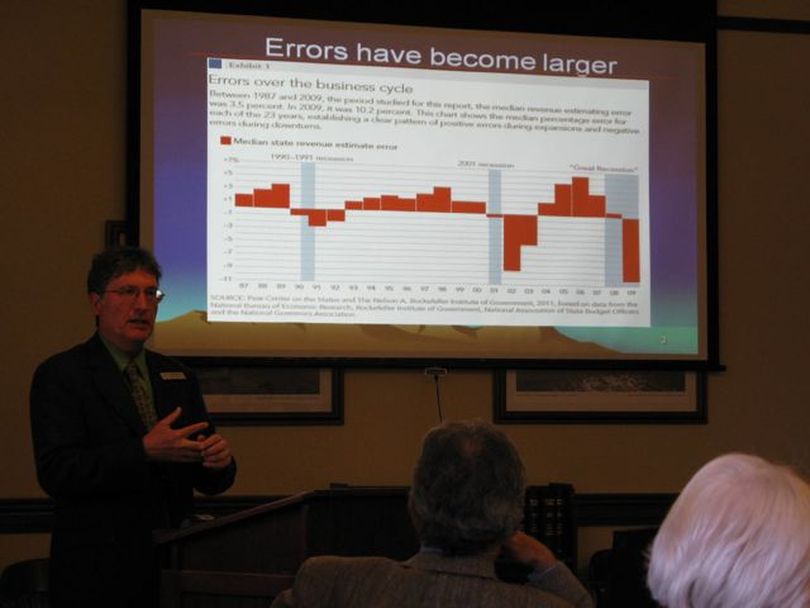Analysis: Idaho more conservative than most states in revenue forecasting

A new analysis shows that over the past 31 years, Idaho's been more conservative than most states in estimating its state tax revenues - the key figure that determines how lawmakers set the state budget. In 11 of the last 31 years, over-estimates of revenues resulted in deficits; but in 20 of the last 31 years, under-estimates resulted in surpluses. The issue has been much in the news the past few years, as Idaho and other states saw revenues fall short during the sharp economic downturn, then under-estimated revenues, forcing deep budget cuts even as the economy began to rebound.
A recently released study by the Pew Center on the States and the Rockefeller Institute of Government found that from 1987 to 2009, states nationally have seen their revenue estimating errors grow, as forecasters missed turns in the economy. "It's not just the state of Idaho - it's everybody," said Idaho legislative budget analyst Ray Houston. "All states miss it." The national study found that state tax revenues have become more volatile, and recommended several steps for states, from removing politics from the estimating process to refilling rainy-day funds to manage volatility.
Houston ran the numbers for Idaho for the past 31 years, to compare to the national study; here's a graph of his findings for fiscal years 1980 through 2010. Idaho's state revenues have been rebounding in the current fiscal year, 2011, which ends June 30, though lawmakers set a budget for the coming year anticipating little growth. Houston said when you compare the time periods that are in both his analysis and the national study, Idaho had a positive 3.4 percent error rate over 23 years, while nationwide, states had a 1.5 percent negative error rate.
"We are still more conservative than the other states in terms of our error rates," Houston told the Legislative Council.
